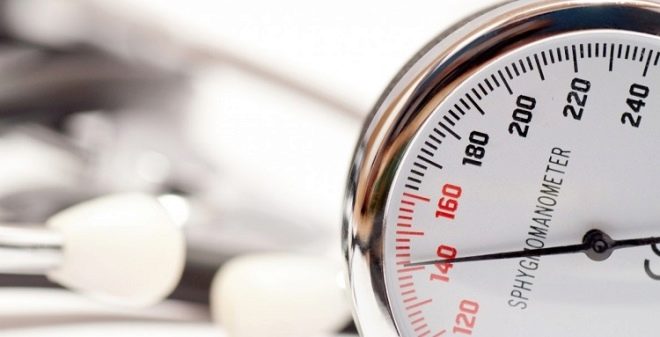Problems with pressure in children and adults from the point of view of psychosomatics
Blood pressure disorder is one of the most common pathologies in the world. High or low blood pressure creates certain risks to human health and life. It is officially considered that problems with blood pressure are associated with lifestyle, body weight, physical exertion, and concomitant vascular and heart diseases, although there is another group of causes - psychosomatic reasons.
No wonder hypertension (high pressure) is included in the so-called Chicago seven of psychosomatic diseases, that is, it is recognized as a disease that most often develops precisely for psychosomatic reasons.
In this article, we will look at why pressure is elevated or lowered from the point of view of psychosomatics.
Medical aspect
Blood pressure is an indicator that determines the force with which a blood flow pushes against the walls of blood vessels. Pressure creates a heart, and at the exit of it blood flows with the greatest “pressure”. As the diameter of blood vessels decreases, from arteries to capillaries, the pressure decreases.
This index is recorded fraction. The upper part of the fraction - systolic pressure, denoting the force of pressure in the arteries at the time of compression of the heart. The lower part is diastolic, that is, the pressure at the time of relaxation of the heart muscle.
Normal healthy blood pressure indicator for a perfectly healthy person is 110/70 millimeters of mercury. Higher rates suggest that a person is in a state of hypertension. Lower ones are called hypotension.
Hypertension is manifested by persistent increase in the tonometer to 140/90 millimeters of mercury. Hypertensives are characterized by pressure drops, an excruciating headache, tinnitus and an oppressive feeling in the region of the heart, and frequent dizziness. Hypertensives get tired quickly, suffer from sweating and shortness of breath, often complain that limbs are dying, swelling of hands, legs, face develop. The main causes are age, blood clots, abnormal eating habits with an abundance of salty and roasted, drinking alcohol and smoking, lack of sleep due to work at night, severe and prolonged stress. In children, hypertension may be manifested by increased intracranial pressure, as well as sleep disturbance and hyperactivity, frequent nosebleeds.
Low pressure is characterized by rates below 100/60 millimeters of mercury.. Hypotension is considered develops on the background of prolonged stress and mental trauma, lack of sleep and depressive disorders. It manifests itself by rapid pulse, shortness of breath, dizziness, drowsiness and weakness, fainting, and increased meteosensitivity.
Doctors in most cases believe that psycho-emotional disorders are the basis of hypotension.
Psychosomatic causes of hypertension
Psychosomatics is a branch of medical science that does not consider a person only from an anatomical and physiological point of view. Psychosomatics evaluates it comprehensively, taking into account the mental and psychological state. And it is this close relationship, according to the researchers, that can provide the most accurate answer to questions about the causes of hypertension or hypotension.
Psychosomatic medicine believes that high blood pressure fully reflects the attitude of a person towards events and obstacles he encounters in his life's journey. At the same time, there are no good and bad events, such an assessment is given by the person himself, and he himself chooses how to treat the event with joy or with experience.
The more experiences a person accumulatesthe more sensitive he is to these or other events, at the same time not being able to throw out his emotions outside, the greater the pressure inside his body (by analogy with a pressure cooker). There is a violation of the regulation of the tone of the vascular walls.
According to researchers, such feelings as guilt, fear, anger, as well as long-term internal conflicts most often lead to hypertension.
Working with a large number of patients with high blood pressure, psychoanalysts have compiled a psychological average portrait of a hypertensive man. Regardless of gender, age, nationality, level of education, social status, all hypertensive patients have short temper and irritability, extreme touchiness. They easily fall into apathy (almost immediately after an attack of anger), they quickly get tired, react painfully to loud sounds, suffer from sleep disturbances, may become aggressive for no apparent reason, suffer from memory impairment.
Many doctors note that psychotherapeutic work with hypertensive patients is quite difficult - they can lose patience at any moment, lose their temper and quit the treatment course.
If the psycho-correction can be completed, then the person internally and externally comes to a state of equilibrium, releases and discards his old offenses and bitterness as unnecessary. At the same time, blood pressure indicators are normalized.
Hypertensive children usually grow up in families in which psychological conflict is heated to the limit.. In childhood, a child does not have enough experience in experiencing negative emotions, and he simply cannot leave the situation of a protracted parental “war” without serious consequences. Both the mother and the father are equally dear to him, and therefore his experiences of family conflicts are always twofold, which means that the load on his psyche exceeds the load on the emotional sphere of each of the conflicting adults by about a factor of two.
Parents scandalous, the child pretends that nothing happens, especially if he is used to scandals. But all this is only outwardly. Internally, he boils and boils a lot of emotions, among which fear and resentment lead on both parents, which leads to an increase in blood pressure.
Even if silence prevails at home, and parents prefer to sort things out without the presence of the baby, they are internally tense, and the child feels it. In this case, he, too, can respond to a “silent war” with hypertension.
In adolescents, high blood pressure often appears as resistance to excessive psychological pressure from parents.. Hypertensive children are very sensitive, impressionable, they do not adapt well to new conditions, and they can be quite conflicting with peers. Teenagers are secretive, silent, they often have a rather low self-esteem and almost pathological dependence on the opinions of others.
Opinion researchers
Psychotherapist Doctor Valery Sinelnikov argues that hypertension is “created” by people who have long refused to accept this or that situation and experience internal stress in this connection.. Most often, according to the doctor, and this is fully confirmed by medical statistics, men suffer from hypertension because they habitually suppress emotions and feelings in themselves, considering it unworthy of the stronger sex to cry or otherwise throw out their feelings.
Canadian researcher Liz Burbo claims that hypertension is a disease of “Samoyeds”, people who are used to being too critical of themselves.. Such people are constantly mentally returning to negative situations, experiencing again and again not the best feelings, they tend to dramatize even fairly innocuous events.
Louise Hay and a number of other psychologists emphasize that the underlying emotional experience is always not based on hypertension. - a person cannot accept something or forgive, let go, he desperately resists inwardly the need to do something without being able to take and refuse such a thing in reality.
Often the pressure rises in people with a very strong and domineering character who are accustomed to subordinate, to suppress others.
Features of hypotension
Hypotension is often characterized by depressive individuals who habitually lose, do not see much sense in activism, because they do not believe that business will be crowned with success. Researchers believe that psychological portrait of hypotonia is based on indecision, inability or unwillingness to take responsibility for their own lives. It is more convenient for such people to blame others for their failures, on circumstances, but not on themselves.
Hypotonics are often superstitious, believe in signs and omens, which allows them to partially justify their own insecurity in their own abilities. They are sometimes unable to establish family life, as they can shy away from sexual relations. At the same time, they often try to suppress others, but not with will, but with a cry or hysterics, after which they immediately lose their strength - they cry and fall into a psychological stupor.
A course of psychocorrection and motivational therapy usually allows a person to gain more confidence in their own abilities, which gives them the opportunity to take on new things and try their hand without fear of suffering a fiasco. Usually the blood pressure then normalizes.
The psychology of the disease is quite simple, and a person can, if he wants, receive treatment on his own. It is enough to learn how to plan your affairs, making a table of cases and responsibilities that you need to take. If it is difficult, psychologists and psychotherapists will come to the rescue.
And in the case of hypertension, and in the case of hypotension in children, family methods are effective, since solving adult psychological problems almost always helps to normalize the pressure in a child.
The more auspicious the emotional situation at home becomes, the better the child feels.
If it is not possible to resolve the parental conflict by the psychologist, it is often for the benefit of separate living, it is important that the emotional background in the house where the baby will live is benevolent.

















